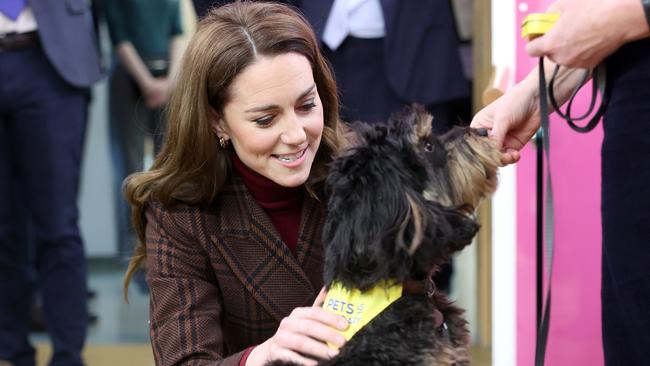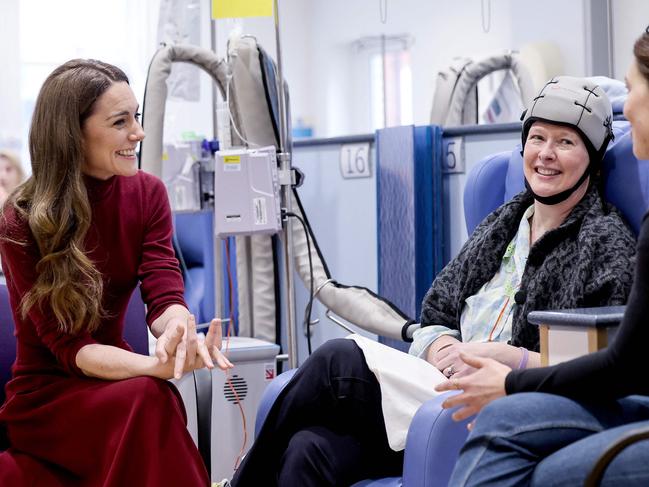Princess Catherine is in remission. Understanding what that means is complicated
Catherine, the Princess of Wales, is in remission. We talk to an oncologist about what that means and how long it lasts

Catherine, the Princess of Wales looked upbeat and calm as she arrived at The Royal Marsden Hospital where she received treatment for unspecified cancer last year.
“My heartfelt thanks goes to all those who have quietly walked alongside William and me as we have navigated everything,” she wrote in an Instagram post on Wednesday.
“The care and advice we have received throughout my time as a patient has been exceptional.” After mentioning the important work happening at the facility, the Princess then provided a personal update.
“It is a relief to now be in remission and I remain focused on recovery. As anyone who has experienced a cancer diagnosis will know, it takes time to adjust to a new normal.”
It’s come as welcome news to all who have followed her journey during the past year. But what does it mean for her health and treatment from here?

SO, WHAT IS REMISSION?
There is no single definition. According to the Australian Institute of Health and Welfare, it is a “decrease in or disappearance of the signs and symptoms of cancer. Remission may be partial (a reduction in some or many symptoms) or complete (all symptoms have disappeared). Remission is not the same as a cure. Even in complete remission cancer cells may still be in the body.”
In a clinical sense, there can be even more nuance. The word may be used to convey different meanings, depending on circumstance, treatment, and cancer itself.
Medical oncologist, Professor Michael Boyer, is the chief executive of Chris O’Brien Lifehouse, and a clinical professor with the University of Sydney. He describes the word as “a very imprecise term”.
“It means different things to different people. Some people use it as a surrogate, as an alternative to the word ‘cure’. Some people use it with the intention that it really is an indication that there’s no sign of cancer, but there is not necessarily an expectation that it’s completely gone.
“The word remission, as it’s most commonly used by doctors, doesn’t convey, usually, that sense of permanence. You know, it’s much more ‘Well, we can’t find anything now, but we need to keep watching, because it may well be back’.”
HOW LONG DOES REMISSION LAST?
There are no rules around this, according to Professor Boyer: “Remissions last till they don’t. And I know that sounds ridiculous, but the fact is, you’re in remission when you can’t find anything, you can’t see anything, and you don’t find anything when we test.
“But at any point that can change. The next scan, the next blood test, the next examination, can show something, and then you would say you’re no longer in remission.
“It can last for three months, it can last for three years. And I guess, best scenario, it lasts for the rest of your life.”

HOW LONG AFTER TREATMENT DOES IT TAKE FOR LIFE TO RETURN TO NORMAL?
While meeting patients at the hospital, the Princess of Wales said even though she has completed her treatment, “it’s hard to get back to normal’’.
Professor Boyer said that was a common response from patients who have potentially experienced a life-threatening situation.
“There can be ongoing, physical and perhaps also psychological impacts of treatment. Not everybody goes back to exactly how they were before. It varies by person, it varies by disease, it varies by treatment, but it absolutely is the case that people don’t always go back to exactly how they were before this all started.”
There can also be financial implications following cancer treatment that can add further complexity to a patient’s recovery.
For people trying to support loved ones through treatment or remission, Professor Boyer said simply being there was a good start and would allow you to better understand how you could be the most useful. After all, each person’s experience of cancer is different, so too are their needs.





To join the conversation, please log in. Don't have an account? Register
Join the conversation, you are commenting as Logout